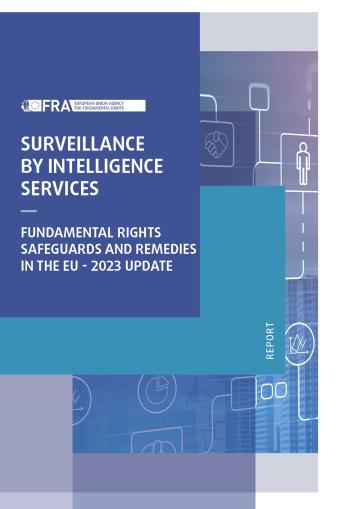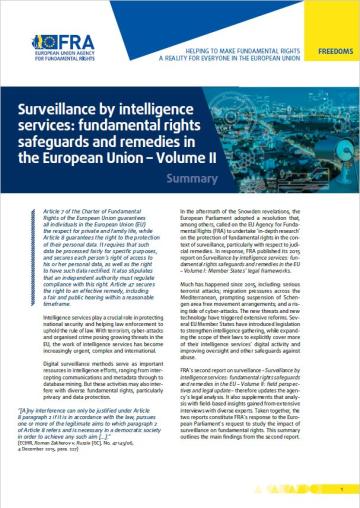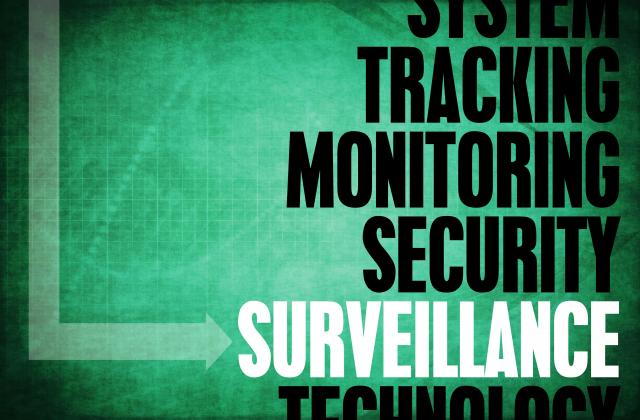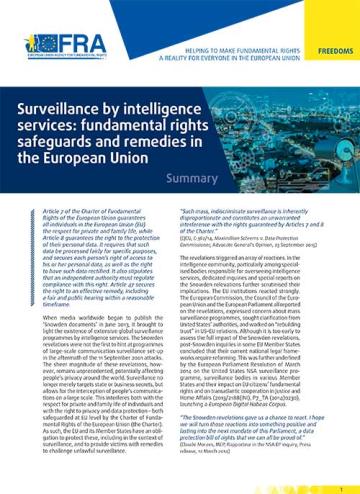The current report updates relevant parts of the 2017 report. Like the 2017 report, this update focuses on the work of intelligence services. It describes the developments that have taken place since 2017 in intelligence laws in the European Union (EU).
Significant developments that have taken place include the welcomed establishment of new oversight bodies following constitutional courts’ decisions and the impact of the 2016 European data protection reform on data protection authorities’ powers in the field of intelligence services’ activities. In 2023, 18 expert bodies are overseeing the work of intelligence services in the EU-27, compared with 16 in the EU-28 in 2017. These developments are viewed in the light of minimum requirements shaped by the Court of Justice of the European Union (CJEU) and the European Court of Human Rights (ECtHR).
In this context, the current report refers to a selection of relevant FRA opinions drawn from the 16 opinions published in the 2017 FRA report, alongside key findings from this earlier report. It also highlights relevant developments over time. In particular, it provides, as per the European Parliament’s request, up-to-date information on existing models of oversight mechanisms and remedies, illustrating them with examples from selected Member States. The report describes five distinct models of oversight frameworks. These encapsulate the diverse spectrum of frameworks across the EU Member States.
In 2017, FRA concluded that protecting the public from security threats while respecting fundamental rights can be achieved through strong oversight systems and effective remedies open to individuals. This conclusion remains valid in 2023.









